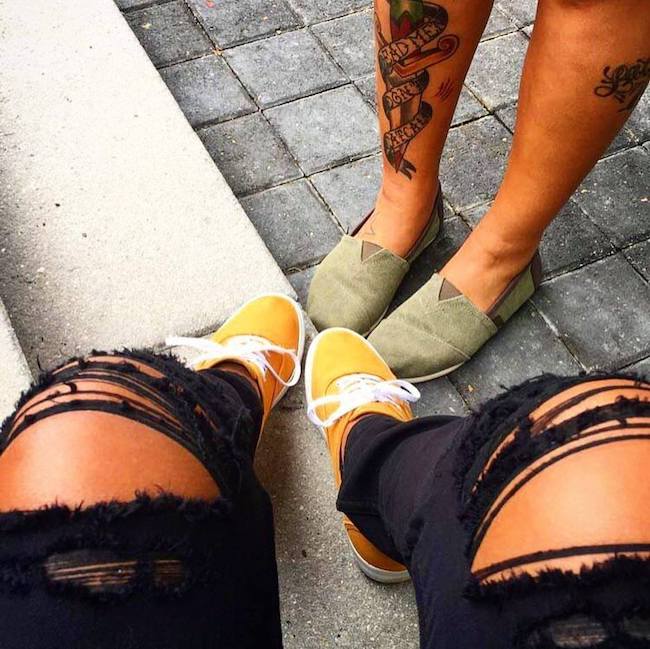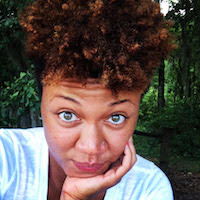
Lately, I’ve been thinking a lot about love.
I remember the first time I felt I was in love. His name was Carlos, and we were in the 2nd grade.
He was Puerto Rican and had wild, curly hair and big brown eyes. Sitting next to me on the circle rug one day, he grabbed my hand and told me he was my boyfriend. I swelled with pride. Marching home that afternoon, I reported my relationship status to my mother.
I had a best friend during this time. White girl, blue eyes, long blonde hair. Her name was Sarah. As I reflect back on my friendship with her, I don’t really think she liked me very much. She was often unkind. One day at school, I saw her sitting next to Carlos on the circle rug. Later that day, I was sitting at a table coloring and Carlos approached me. I stood up to say hello and he punched me in the stomach and angrily told me, “Sarah is my girlfriend now.” I fell backwards and began to cry. My embarrassment turned to rage and I stood up and punched him back. We began to fight and my teacher eventually separated us.
I can remember going home later that day and crying. I tried to be friends with Carlos again—sharing my favorite snacks with him, coloring detailed pictures and leaving them by his book bag. He never talked to me again and I blamed myself entirely.
Little did I know, then, that much of my intimate and romantic experiences moving forward throughout my adolescence and early adulthood would mirror this particular dynamic.
See…love has not always felt like a safe place for me. I’ve spent significant periods of my life with partners who were abusive, toxic, and degrading. I’ve lost so much of myself in the people I was engaged with, that I often felt as if I could not go on living should they decide to leave. I can recall crying night after night and wondering why the person I chose to love refused to love me in kind.
My sense of self-worth and value often wrapped around another person’s perception and understanding of me, and completely decimated at any sign of rejection.
I experienced an incredible heartbreak some time ago and the depression I felt terrified me. At the suggestion of my closest friends, I finally got into therapy and spent an hour every week for over a year processing love and all of the various ways we experience and resist it.
In this journey back home to myself, I picked up some important lessons that have shifted my understanding of love along the way.
Here are five of them.
Lesson 1: Dysfunction is not love.
Throughout childhood, we learn a lot of lessons about love. I first learned that “love was complicated” through my experiences of physical discipline. When I would behave badly, or not follow instructions, I was beaten, sometimes in a fit of rage because of the way my actions triggered frustration and unhappiness.
I would rub the rising welts on my arms and legs. As I walked away, I was told it was only done out of love and “wanting the best for me,” and I would experience an odd sense of ease. Knowing that I was still loved, despite how scared I was at the time, made the pain feel like an unfortunate, necessary aspect of a loving relationship.
Individuals who endure physical discipline as children learn early on that love is pain, and that even though our parents/caregivers made us sad and physically hurt us sometimes, they loved us—solidifying this idea that to feel and experience great love, we sometimes have to endure significant pain.
This message is reinforced through movies, music, and TV dramas. We watch mindlessly as couples fight, then make passionate love, stuffing their pain, resentment, and anger toward one another. We repeat these patterns in our personal lives. Arguing with partners incessantly, laying in bed night after night with a person who does not bring us joy and happiness. Silencing our own needs and wants. Enduring the scrutiny of jealous partners because “a jealous partner is one who cares.” Aching for validation and acceptance from people who consistently are unable to provide it.
We tolerate and accept sadness, despair, and hopelessness, under the guise that this is love.
Love is complicated. Love is painful. But…it’s worth it, right?
Well, guess what? That is a bunch of bullsh*t. Love is not that complicated. Painful love is actually never worth it.
Unlearn the false notion that dysfunction is love.
Dysfunction is just dysfunction.
Lesson 2: It’s okay to be alone.
When was the last time you were without a partner? Or didn’t have plans with a friend? Or a date with a person you met on a dating website? When was the last time you were not romantically or sexually involved with another person?
When was the last time you were truly alone?
Many of us are walking through life with heaps of emotional and mental baggage, caused by various experiences of pain and trauma. We hate to be alone because when we are alone, we are left with our own thoughts. So we fill our time and our lives with people. Scheduling plan after plan, date after date, in our attempts to avoid actually sitting with ourselves. Hoping that the people we choose to share our time with will fill the gaps we have in our souls.
We would much rather be with people who do not treat us well than be alone. This fear of loneliness drives us to accept much less than we deserve.
Instead of fearing alone time and loneliness, embrace it. Re-engage in all of the things you love to do but have not had time for. Read a book that you have been meaning to read.
Use it as an opportunity to explore who you are and what makes you feel fulfilled.
Lesson 3: We teach people how to love us.
In the words of my therapist, “hear me out.”
This lesson can be the most challenging to learn. It requires that we accept some sort of accountability for the type of love we receive from others. I remember the first time my therapist told me that I needed to hold myself accountable for the dynamics in my relationships. I became visibly agitated and was ready to curse her out, when she went on to explain to me that by not maintaining firm boundaries and by believing that I was not worthy of more, I (accidentally) taught my ex-partners how to love me.
I taught them that I was not worthy of care, kindness, and compassion. I taught them that my boundaries were negotiable and fluid. They learned from me that my sexual satisfaction did not matter. I reminded them of how much I did not know myself by allowing them to invalidate my feelings time and time again. I taught them that loyalty was irrelevant to me, as I stuck around while they dated other people. Allowing myself to be a second choice proved to them that I did not find myself worthy of being the first and only choice.
We teach others how to love us by what we do and do not accept from them. Sure, my ex-partners were, more often than not, manipulative and callous. However, my lack of self-love and self-awareness deterred me from setting boundaries and then quickly removing them from my life at the first sign of trouble.
In order to accept accountability, we must first be emotionally honest with ourselves.
Acknowledge the role you have played in your own heartache. Sit with the sadness, shame and guilt that you will inevitably feel from this important revelation. Seek support from a safe and trusted loved one or therapist/helping professional. Process the f*ck out of it. Free yourself of it. Then choose that from here on out, you will teach people how to love you in ways that make you feel fulfilled and whole.
Lesson 4: Your feelings are valid and deserve to be affirmed.
“You’re being too sensitive.”
“I never said that.”
“I don’t know what you’re talking about.”
Gaslighting is a manipulative tactic used by a person to cause one to question their own sanity. Two conflicting beliefs tend to arise: Is this person right, or can I trust what I experienced? In the constant shaming of my feelings, my ex-partners manipulated me into believing that I was irrational and unreasonable. For two years, I allowed one of my exes to alter my perception of my own reality. I willfully and intentionally put my feelings, thoughts, and concerns about that relationship on the back-burner in my efforts to keep her in my life.
Many of us exist in partnerships with individuals who are unable to validate and affirm our feelings, thoughts, and concerns. Choosing our notions of “love” over our needs and wants to feel seen, understood, and heard. There will be times when, in sharing your feelings and emotions with others, their insecurities and fears will be triggered. This can lead the other person to become defensive, sad, and angry.
This is not your fault and you are not responsible for “fixing it” or “making them feel better.” It is their problem and not yours.
What has worked for me is to simply continue to speak my truth as a way to validate and affirm my own feelings, even though the other person is not in a place where they are able to accept them.
At the end of the day, how an experience makes you feel is relevant and important. A partner who consistently chooses not to validate and affirm your feelings is not a healthy and loving partner, and likely not the appropriate partner for you.
Note: It is important that in communicating your thoughts and feelings, you do so with compassion and thoughtfulness. Sharing in an intentional and mindful way allows space for the other person to respond in kind.
Lesson 5: You are worthy and deserving of happiness.
You deserve to be happy and to feel safe in an intimate partnership. You deserve to have care and love reciprocated. You are worth the effort. You are worthy of compassion, passion, and intimacy. You deserve patience. You deserve time. You are worthy and deserving of respect. You deserve a partner who will be sweet to you. You are worthy of a partner who celebrates your authenticity and provides support in your freedom of expression. You deserve to feel sexy. You are worthy of open and honest communication.
You are worthy. More than worthy. You are exceptional. Imperfectly divine.
You deserve goodness. Anything less than that…well…it just won’t do.
“Someone can be madly in love with you and still not be ready. They can love you in a way you have never been loved and still not join you on the bridge. And whatever their reasons you must leave. Because you never ever have to inspire anyone to meet you on the bridge. You never ever have to convince someone to do the work to be ready. There is more extraordinary love, more love that you have never seen, out here in this wide and wild universe. And there is the love that will be ready.” ~ Nayyirah Waheed
Author: Alandria Mustafa
Image: Author’s Own
Editor: Emily Bartran
Copy Editor: Catherine Monkman
Social Editor: Waylon Lewis






Read 2 comments and reply